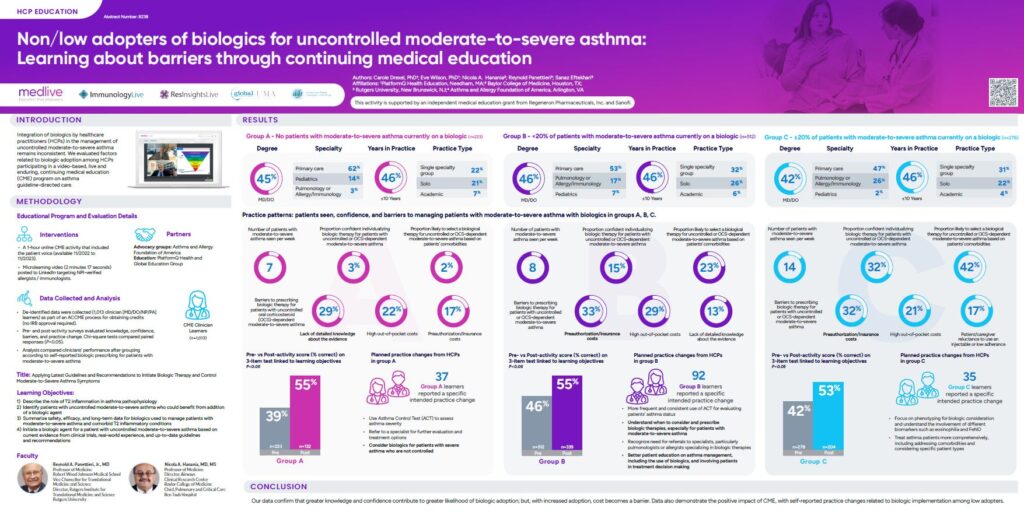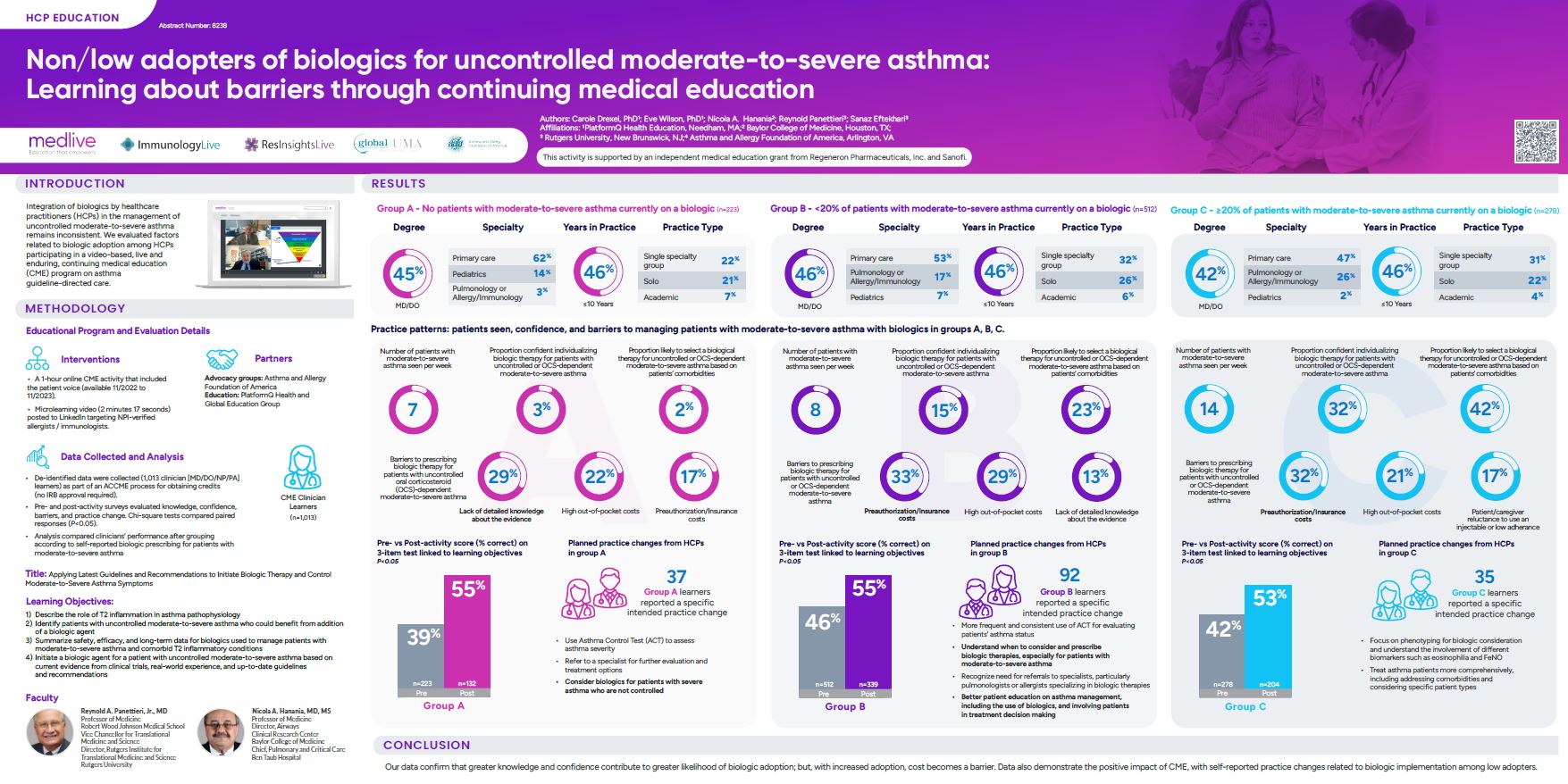*This information was originally published as part of an abstract for ACAAI’s 2024 Annual Scientific Meeting*
Understanding Asthma and the Role of Biologics
Asthma, a serious chronic lung disease, affects 26.8 million adults and 4.5 million children in the U.S. according to the American Lung Association. Research on the pathophysiology of type 2 inflammation has brought new targeted therapies to market that may make a significant difference for patients affected by uncontrolled moderate-to-severe asthma. While these innovative biologics play a significant role in treating disease, integration by healthcare practitioners (HCPs) remains inconsistent due to barriers in provider knowledge and confidence.
The Medlive Approach
At Medlive (formerly ImmunologyLive), we believe that we can help overcome these barriers through targeted digital education. To that end, we, joined forces with the Asthma and Allergy Foundation of America to host “Applying Latest Guidelines and Recommendations to Initiate Biologic Therapy and Control Moderate-to-Severe Asthma Symptoms” an educational program targeted to NPI-verified allergists and Immunologists that consisted of a 1-hour online continuing medical education (CME) activity and a LinkedIn-native microlearning video.
Program Goals
The goals of the CME were to communicate the role of T2 inflammation in asthma pathophysiology and help practitioners identify patients with uncontrolled moderate-to-severe asthma who could benefit from the addition of a biologic. To accomplish this, faculty members Reynold A. Panettieri, Jr., MD and Nicola A. Hanania, MD, MS detailed the safety, efficacy, and long-term data for biologics in addition to outlining current clinical trial evidence, real-world experience, and up-to-date guidelines and recommendations.
Data Analysis
Poster data was collected from 1,013 clinician learners who were segmented into three groups based on their adoption levels of biologics:
- Group A: Non-adopters – 0% of patients with moderate-to-severe asthma are on a biologic.
- Group B: Low adopters – less than 20% of patients with moderate-to-severe asthma are on a biologic.
- Group C: Higher adopters – more than 20% of patients with moderate-to-severe asthma are on a biologic.
Based on pre- and post-education survey data, we found:
- Improvement in Knowledge: All groups showed significant improvement in knowledge after the CME program, with Group A’s correct response rate increasing the most dramatically from 39% to 55%.
- Practice Changes: Post-CME, many Group B had the highest number of HCPs reporting they intended to implement specific practice changes, including understanding when to consider and prescribe biologic therapies, especially for patients with moderate-to-severe asthma.
- Better patient education on asthma management including the use of biologics and involving patients in treatment decision making.
- Group C planned on focusing on phenotyping for biological consideration and understanding different biomarkers.
Conclusion – Collaborating for Improved Patient Outcomes
By partnering with leading advocacy organizations to offer continuing education on the use of biologics when treating moderate-to-severe asthma, we can ensure clinicians are equipped with the information they need to deliver optimal care to asthma patients. If you’d like to learn more about working with Medlive to deliver your next CME program, e-mail hello@medlive.com to get-in-touch.
About Medlive (formerly ImmunologyLive)
Medlive is the leader in learner engagement and educational design for clinicians, patients, and caregivers seeking dynamic, up-to-date, accurate medical education. Medlive provides trusted digital health education from leading specialists and advocacy/partner organizations to empower audiences to make informed medical decisions that lead to better health outcomes.
Visit Medlive.com for more information.


